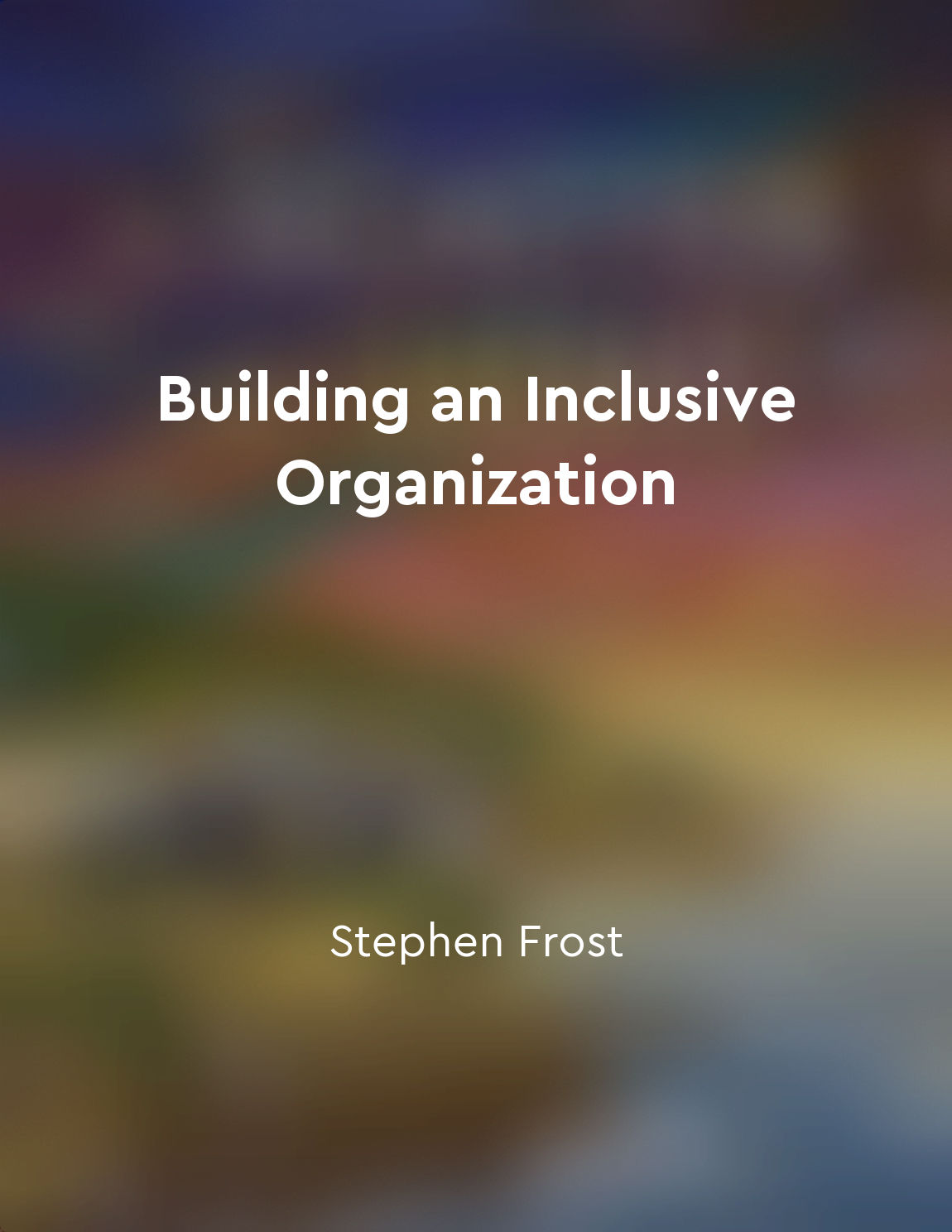Address microaggressions and discrimination from "summary" of Building an Inclusive Organization by Stephen Frost,Raafi-Karim Alidina
Addressing microaggressions and discrimination is crucial in building an inclusive organization. Microaggressions are subtle, often unintentional behaviors or comments that convey negative messages about a marginalized group. These can include jokes, stereotypes, or exclusionary language that can make individuals feel unwelcome or marginalized. Discrimination, on the other hand, refers to the unjust treatment of individuals based on their race, gender, sexual orientation, or other characteristics. In order to address microaggressions and discrimination, organizations must first raise awareness about these issues. This involves educating employees about what constitutes microaggressions and discrimination, as well as the impact they can have on individuals and the organization as a whole. Creating a culture of awareness and understanding is essential in preventing these behaviors from occurring. Organizations can also implement policies and procedures to address microaggressions and discrimination when they do occur. This can include clear guidelines on appropriate behavior, reporting mechanisms for individuals who experience or witness discrimination, and consequences for those who engage in discriminatory behavior. By establishing accountability and consequences, organizations can send a clear message that such behavior will not be tolerated. Furthermore, organizations must provide training and resources to help employees recognize and address microaggressions and discrimination. This can include unconscious bias training, diversity and inclusion workshops, and resources for individuals who experience discrimination. By equipping employees with the tools and knowledge to address these issues, organizations can empower individuals to create a more inclusive and welcoming environment for all.- Addressing microaggressions and discrimination is essential in creating an inclusive organization where all individuals feel valued and respected. By raising awareness, implementing policies and procedures, and providing training and resources, organizations can work towards creating a culture where diversity is celebrated and discrimination is not tolerated.
Similar Posts

The art of communication is a lifelong learning process
The process of communication is a complex and multifaceted aspect of human interaction that requires constant attention and eff...
Language reflects social hierarchies in the workplace
In professional settings, language is not merely a tool for communication but also a reflection of social hierarchies within th...

Managers play a crucial role in employee engagement
The relationship between managers and their employees is a critical factor in determining the level of engagement within an org...
Women trapped in suburban roles
Betty Friedan vividly portrays a disturbing picture of women who are confined to the narrow roles prescribed for them in suburb...

Leading by example and staying true to your values
Leading by example and staying true to your values are essential when it comes to being a successful leader. It's not enough to...
Resistance to change is a common challenge
Resistance to change is a prevalent obstacle that leaders often encounter when implementing new initiatives within their organi...

Prioritize employee wellbeing and happiness
In a world where burnout is increasingly common, leaders must make a conscious effort to prioritize the wellbeing and happiness...
Embrace challenges as opportunities for growth
Life is full of challenges, obstacles that can either hold us back or propel us forward. Instead of shying away from challenges...
Cultivate strong relationships with employees
Building meaningful connections with your employees is a foundational element of creating a successful and thriving company cul...
Capitalism has transformed work into a commodity
In the modern world, work has become something that is bought and sold, traded and hoarded like any other commodity. It is no l...


